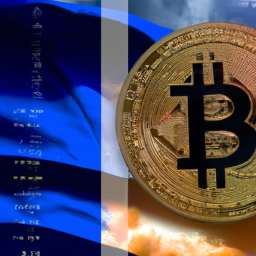How France's €7.7 Billion Deficit Could Send Bitcoin Soaring: Arthur Hayes' Bold Prediction
Former BitMEX CEO Arthur Hayes believes France's catastrophic financial crisis could force the ECB into massive money printing, creating the perfect storm for Bitcoin to thrive as a store of value. Here's his analysis.

France's Catastrophic Deficit: An "Excellent Thing" for Bitcoin According to Arthur Hayes
As the saying goes, one person's misfortune can be another's opportunity. Arthur Hayes, former CEO of BitMEX and current Chief Investment Officer at Maelstrom, known for his bold Bitcoin predictions (including a $1 million BTC price target), has turned his attention to France's financial woes. According to Hayes, the dire economic situation in France could trigger massive euro printing by the European Central Bank (ECB), potentially creating a significant tailwind for Bitcoin.
The Bank of France's Deep Financial Troubles
In an interview with Cointelegraph at the Token 2049 event in Singapore, Hayes explained how France's economic crisis could benefit store-of-value assets like gold and Bitcoin. The Bank of France recently announced a net deficit of 7.7 billion euros for the 2024 fiscal year, contributing to the French government's overall deficit of more than 168 billion euros.
This deficit represents 5.8% of France's GDP, significantly exceeding the 3% maximum threshold imposed by European Union regulations. Such a substantial budgetary gap puts France in a precarious financial position and creates pressure for monetary intervention.
How Economic Disaster Could Benefit Bitcoin
Hayes believes this deficit could force the European Central Bank to print "trillions of euros," with some of this newly created liquidity potentially flowing into Bitcoin and the broader cryptocurrency market. The inflationary nature of such monetary policy typically drives investors toward hard assets that can serve as inflation hedges.
According to Hayes, capital has been fleeing France at an unprecedented rate. If the ECB resorts to expanding the money supply, this newly created currency could benefit Bitcoin in two ways:
- Direct investment flow from those seeking to protect their wealth from inflation
- Appreciation of Bitcoin's value relative to a depreciating euro
"French capital is leaving France. And if you look at the gross change of any other [EU] member: it's the worst. (...) That's what will drive the ECB to print now or later trillions of euros. (...) Another great thing for cryptocurrency."
Arthur Hayes, Chief Investment Officer at Maelstrom
A Stark Contrast in Economic Approaches
While France's economic situation appears bleak, Hayes suggests this could actually create a favorable environment for Bitcoin. Unlike the United States, which has been taking steps to stimulate local entrepreneurship and innovation (potentially fostering wealth creation), successive French governments have typically relied on a single solution: increasing taxes and levies.
The latest recycled idea being considered is increasing the flat tax from 30% to 36%, which could further discourage investment and accelerate capital flight from the country. This economic approach stands in stark contrast to policies that might encourage wealth generation and economic growth.
The Bigger Picture for Bitcoin
While no one celebrates economic hardship for its own sake, Hayes's analysis highlights how macroeconomic conditions and central bank responses can create environments where alternative assets like Bitcoin thrive. As traditional financial systems face growing pressure, Bitcoin's core value propositions—fixed supply, censorship resistance, and decentralization—become increasingly attractive to investors seeking refuge from currency devaluation.
Whether the ECB ultimately resorts to massive money printing remains to be seen, but France's current economic trajectory certainly suggests that significant monetary intervention may be on the horizon. For Bitcoin proponents, such developments could provide additional validation for the asset's role in a diversified portfolio, particularly during times of economic uncertainty and currency instability.